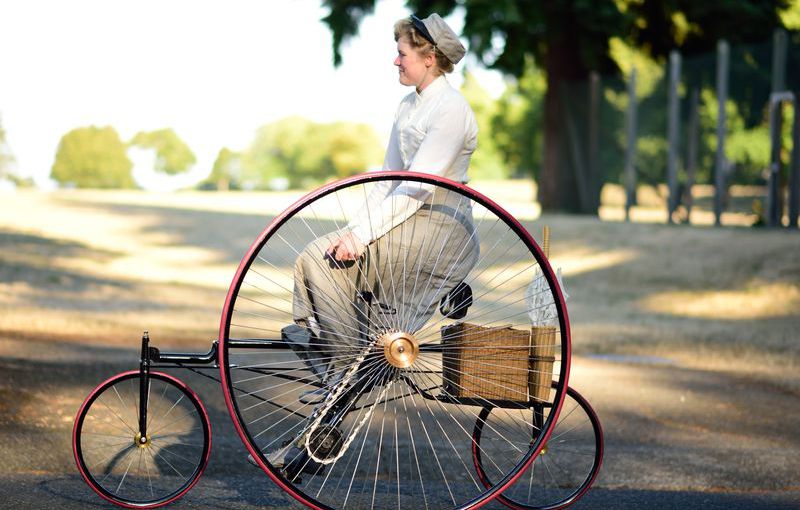Sara and Gabriel Chrisman have committed a great sin.
They are researchers interested in the Victorian era near the end of the nineteenth century and like this particular period so much that have decided to “live in it“. About five years ago, they purchased a 19th century-built house in Port Townsend, Washington State and got rid of most (or all) of the contemporary tools and gadgets and replaced them with things such as icebox, mechanical clock, fountain pen, and oil lamp. They have lived a Victorian life since then.
You may think of their attempt as interesting, funny, in vain, or irrelevant. Nevertheless, you most likely agree with me that trying to live by Victorian tools is a harmless and innocent hobby that should not make anyone angry. However, although most people treat Sara and Gabriel with respect, there are a few who do their best to make their lives as miserable as they can. These are people who swear at their face or send them hate letters with death threats. It seems that some people simply cannot tolerate what Sara and Gabriel do, that is, living a happy life in such a way that seems to be very different from the rest of us.
But why? What is the reason for such anger, violence and irrational behavior? What is in Sara and Gabriel’s way of life that makes it so unacceptable in the eyes of some?
I tend to agree with John Greer that it has something to do with the fact that this couple have broken one of the prevalent taboos of the contemporary modern cultures. They, by choosing to live a Victorian life, have shown that it is ultimately up to each of us to select the set of tools by which we would like to live. In other words, they tell us that we are free to choose or reject any of the advanced contemporary technologies.
But the idea that we can actually chose the technologies that shape our living style is a modern taboo. You cannot say or do such things as “we have a choice in accepting or rejecting advanced often professionally prescribed technologies”, because by saying so, you are implying that we have genuine choice, hence, there is a real possibility of not choosing some or all of the advanced technologies.
Sara and Gabriel has broken this taboo in an irrefutable way. Their practical message to others is not “hey! you should also join us and live a Victorian lifestyle!”, but is something more radical. They are saying “instead of following the lead of professional marketers and technology brokers you can take control of your own life. You can choose!”.
The idea that one is free to accept or reject advanced technologies is a modern taboo. The view that one can live without TV, computer, smart phone, cars, etc. is a “modern heresy” and whoever commit such a heresy, in words or deed, will face punishment: they shall be violently humiliated and marginalized.
But Sara and Gabriel are also interesting from another perspective. In choosing a less material and energy intensive life style, they join the pioneers who acknowledge the demise of the epoch of abundance of concentrated energy, resources and wastefulness. Don’t let their 19th century living style deceit you; they are neither seeking to move back in time nor try to act as present-day Luddites, but, through radical reduction of their material and energy consumption they have their gaze toward future. Sara and Gabriel based on the material heritage of their own culture have taken a brave step toward exploring ancient and new ways of being human and less wasteful.
من در حوزهٔ مدیریت و مهندسی محیطی تحقیق و تدریس میکنم: چطور میتوان کارآیی سیستمهای شهری و صنعتی را از طریق مطالعهٔ سیستمی، ایجاد پیوندهای موثر بین آنها و مدیریت بهتر پسماندها افزایش داد و ظرفیتها و امکانهای مختلف را ارزیابی نمود؟ در این حوزه سعی میکنم یک عملگرا و ارائهدهندهٔ راهحل باشم. در پسزمینهٔ مطالعاتیام علاقمند به تاریخ، مدرنیت، و شناخت و نقد قطعیتها و اسطورههای معاصر هستم. در این حوزه سعی میکنم ارائهدهندهٔ پرسشهای رادیکال و دشوار باشم. پیش از این، حدود هشت سال در صنایع بینالمللی نفت و گاز در ایران و برخی کشورهای حاشیهٔ خلیجفارس کار کرده بودم.
